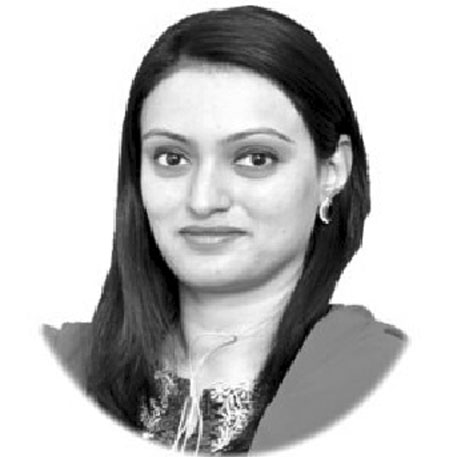Reema Shaukat
MANY countries are lying on the world map but very few gain the status of nationhood. Why? The reason nations certainly rise to such stature with the possession of great values and strengths which distinguish them from rest of the world. Certainly such nations have distinct powers but exercising balance of power keeping in view all the elements of national power is the key to successful nation. The concept of nation-state emerged from Treaty of Westphalia and had its background in destructive and prolonged wars fought in Europe. As the concept of nation-state solidified, it produced diverse ideas like sovereignty, states, international borders, treaties, national interests etc. With maturation of the concept of nation states, state emerged as the main source of national power and hence its fundamental elements. Kingman Brewster, Jr in one of his article ‘Reflections on our National Purpose’, argues that ‘A nation, like a person, needs to believe that it has a mission larger than itself’. Hence national power is a nation’s ability to influence events to suit own advantage so the entire concept is to secure whatever is considered best for the state as a whole.
National purpose occupies an essential place in the milieu of national power as it acts like a magnetic force which holds all elements together. While the national power and national interest are also different sides of the coin but key component for any nation. So, national interest can be defined as ‘the common material and spiritual needs of all the people of a nation state’. In material terms a nation needs security and development. In spiritual terms, a nation needs respect and recognition from the international community. National power is the capacity or ability of a nation to get her will obeyed by other nations or it can also be defined as the combination of power and capacity of a state which the state uses for fulfilling its national interests and goals. There are many important elements of national power which include geography, populace, economy, diplomacy, military, technology and many others.
However, when it comes to determining state power and national security, there are four important pillars which are vital for any state. These include economy, military, judiciary and democracy. Now in this era of technology, media is regarded as fifth pillar of state as it shapes the opinion more immediately than any other source of information. In case of our Pakistan these are essential pillars like any other system and all of them working together as a binding gel is must and if any of pillar tries to disrupt others’ working, naturally the balance of nation as a building is disturbed and any foreign element taking an advantage of any kind of weakness can shatter the state’s building. Considering economy as one of the major pillars then it’s important to highlight that in comity of nations, without growing economy, any country cannot sustain. Economic development is a critical component that drives economic growth in our economy, creating high wage jobs and facilitating an improved quality of life. Economic growth means a rise in real GDP or more effectively it means a rise in national income, national output and total expenditure. Economic growth should enable a rise in living standards and greater consumption of goods and services. For better livelihood, jobs and sustainable market in the arena, economy matters a lot and in case of Pakistan, present government is taking consolidated steps to rise the economy and come out of debt circle.
Democracy is another vital mainstay without which any country cannot work. The structure by which country is made to run is by democratic values and effective political system lies in practising democracy. In Pakistan, elections are held and people are given free choice to select any political party to rule. Diplomatic relations are also assessed by effective democracy in any of country and Pakistan maintains cordial relations with many countries of the world. Likewise, Judiciary is important as a strength to have proper and robust justice system. If justice is not provided to public and law and order does not prevail in any country then one can compare it with law of jungle where no laws are followed. Pakistan’s military is considered out-class in the world and its armed forces are among the best particularly after defeating menace of terrorism, Pakistan’s armed forces are admired and acknowledged for their efforts and having effective military. Media in age of hybrid warfare is regarded as fifth pillar of state as all other pillars need to work efficiently and media act as one of monitors in era of information technology. In the past few months, it is observed that some forces have been trying to manipulate the working of an effective system and want to create disharmony among state institutions. If judiciary goes against military or military takes any illegal steps definitely state system is going to be disrupted. Same goes for political balance, economic conditions and media ethical norms to not create an air of uncertainty about any pillar of the state. As a backbone of the country, all state institutions must work together coherently in order to avoid any chaos. Foreign powers always take advantage of such created conspiracies and can disrupt state system by any means. Pakistan and its public must remain cognizant of such elements and work together for better future of the country.
— The writer works for Pakistan Institute for Conflict and Security Studies, a think-tank based in Islamabad.









